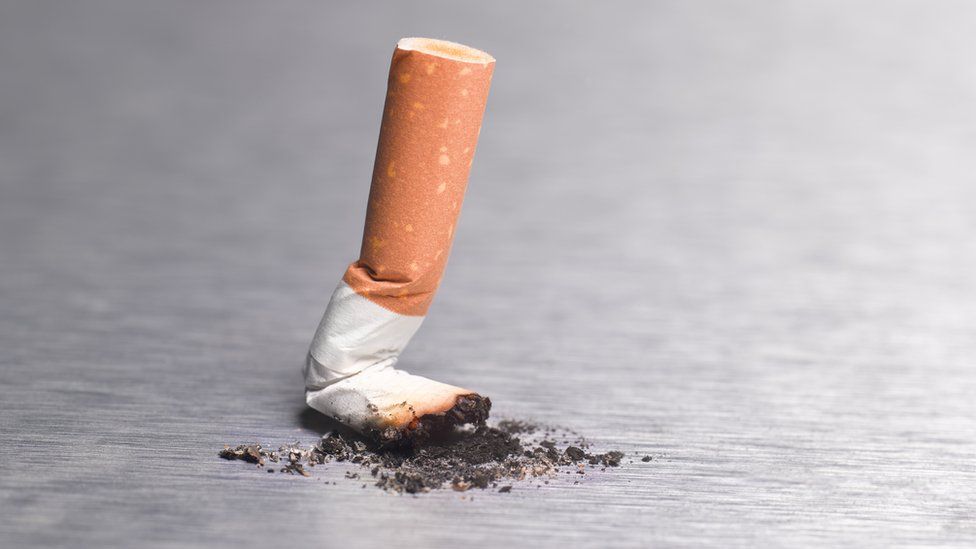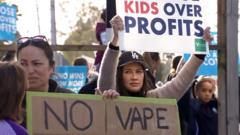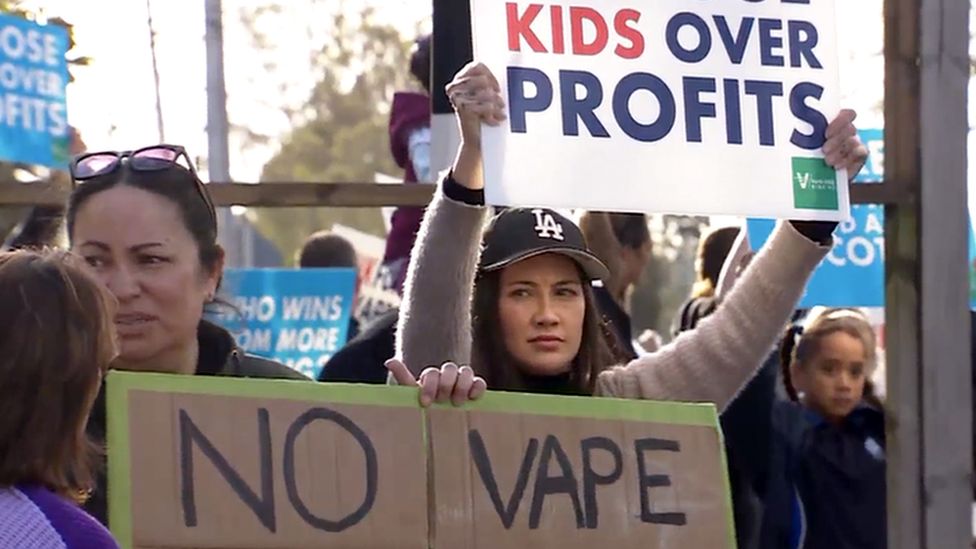
New Zealand’s new government has announced it will scrap the nation’s world-leading smoking ban to help fund tax cuts.
The legislation, introduced under the previous Jacinda Ardern-led government, planned to ban cigarette sales next year to anyone born after 2008.
Smoking is the main cause of preventable deaths in New Zealand, and the policy had aimed to stop young generations from picking up the habit.
The change has shocked health experts.
Public health modelling had suggested that the Smokefree laws would save up to 5,000 lives each year.
A national Māori health organisation, Hāpai Te Hauora, called it an “unconscionable blow to the health and wellbeing of all New Zealanders”.
Smoking rates, and associated disease and health issues, are highest among New Zealand’s indigenous Māori population, for whom experts had said the policy would have the most positive impact.
Along with banning sales to young generations, the legislation would have removed tobacco products from 90% of stores currently selling them in New Zealand and also regulated cigarettes to have a lower amount of nicotine in them.
New Zealand’s Smokefree policy is believed to have inspired the UK government in September to announce a similar smoking ban for young people.
However in New Zealand, the policy had also been consistently criticised by business groups, with owners of newsagents and corner shops criticising the loss of revenue from tobacco sales – even with government subsidies.
Conservative lawmakers had also argued a ban would lead to a black market for tobacco.
On Saturday, New Zealand’s new finance minister Nicola Willis said the coalition government would repeal the laws, to help fund tax cuts pledged during the election.
The main party in charge, National, had not campaigned on a repeal of the laws – so the announcement has shocked health experts who believed the policy to be safe in a National government.
However Ms Willis said National’s partners in the coalition- the populist New Zealand First and libertarian Act – had been “insistent” on reversing the Smoke-free legislation.
Despite a landslide victory in the 14 October election, the centre-right National party has struggled for weeks over policy in its negotiations to form coalition government with the two minor parties.
A deal was only agreed to on Friday, six weeks after the election, allowing the new government to be sworn in on Monday.
Both minor parties blocked one of National’s flagship policies to open up foreign property ownership – which the party had been relying on to fund tax cuts for middle and higher-income earners. Ms Willis told New Zealand broadcaster TV3’s Newshub Nation on Saturday that led to the party looking elsewhere.
“We have to remember that the changes to the smoke-free legislation had a significant impact on the government books, with about a billion dollars there,” she said.
But several public health experts have criticised the direction.
“The suggestion that tax cuts would be paid by people who continue to smoke is absolutely shocking,” Emeritus Prof Robert Beaglehole, chair of New Zealand’s Action for Smokefree 2025 committee told Pacific Media Network.
Public health modelling conducted in 2022 had shown the Smokefree policy would have saved New Zealand’s health system about NZ$1.3bn (£630m; $790m) over the next 20 years.
New Zealand still aims to reduce its national smoking rate to 5% by 2025, with the aim of eventually eliminating it altogether.
More than 80,000 adults have quit in the past year, its national data shows. Currently, about 8% of its adult population smokes.



